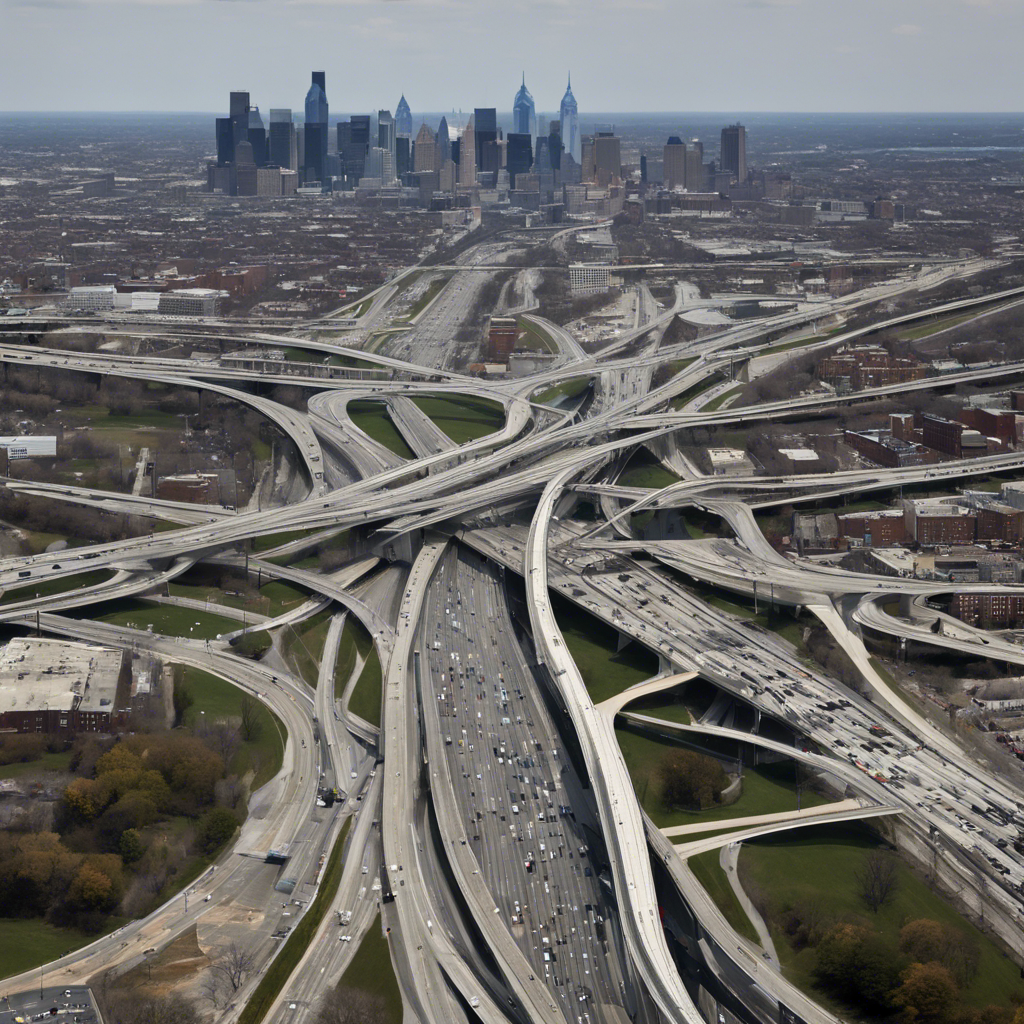Proposed I-95 Expansions Pose Threat to Philadelphia Neighborhoods

Concerns raised over the impact on property values, quality of life, and economic activity
A controversial proposal to expand Interstate 95 in South Philadelphia and Center City has raised concerns among residents. PennDot’s plans to widen the highway and add new interchanges have sparked fears of displacement, increased traffic congestion, and a prioritization of economic development over community needs. This article explores the potential consequences of the proposed expansions on property values, quality of life, and economic activity, highlighting the need for a more holistic approach to transportation planning.
Impact on Neighborhoods
The proposed I-95 expansions are slated for densely populated neighborhoods and historic areas, raising concerns about the loss of community, commercial, and personal space. The plans include new ramps, widened lanes, and potentially a new overpass, all of which could disrupt the fabric of the affected neighborhoods. Traffic data from PennDot itself indicates that the need for expansion is questionable, as traffic on I-95 drops significantly south of the Benjamin Franklin Bridge.
Long-term Decline in Property Values
Contrary to claims that the expansions will facilitate growth, economic data suggest that neighborhoods near the proposed project will experience a long-term decline in property values. The increase in noise and pollution from the expanded highway is likely to make these areas less attractive to potential buyers or renters. Existing residents, particularly those living along the highway, may face the prospect of diminished property values and a negative impact on their investment.
Quality of Life Concerns
The anticipated increase in high-speed traffic resulting from the I-95 expansions raises concerns about the overall quality of life for residents. Noise pollution and reduced air quality can have detrimental effects on physical and mental well-being. Furthermore, the loss of community spaces and increased congestion on local streets may diminish the sense of belonging and community cohesion in the affected neighborhoods.
Economic Activity Decline
The potential negative impact on economic activity is another significant concern. Noise and pollution from the expanded highway could deter businesses from establishing or maintaining a presence in the affected neighborhoods. Additionally, the increased traffic congestion may discourage visitors and tourists, leading to a decline in local commerce and tourism-related revenue. The proposed expansions may inadvertently prioritize the economic needs of the Sports Complex and new developments over the existing residents and businesses.
Transportation Planning Flaws
The I-95 proposal contradicts the modern transportation planning consensus, which suggests that adding more lanes leads to more traffic, rather than less. Cities like Los Angeles, Houston, and Atlanta serve as examples of this phenomenon, with wide highways failing to alleviate traffic congestion. Southeastern Pennsylvania benefits from an extensive rail transit network that has the potential to reduce the number of cars on the road significantly. Instead of widening highways, investing in and adequately funding public transit, such as SEPTA, would yield a better return on investment.
Conclusion:
The proposed I-95 expansions in South Philadelphia and Center City have raised valid concerns about the potential negative consequences for neighborhoods, property values, quality of life, and economic activity. The prioritization of traffic flow over the well-being of residents is a pattern that needs to be addressed. Elected officials and community leaders must demand that PennDot reconsiders the project and limits itself to rebuilding the highway rather than widening it. Additionally, a reassessment of PennDot’s priorities and assumptions, as well as the involvement of engineers with a deep understanding of urban needs, is crucial to avoid future expansions that could harm Philadelphia’s communities. By taking a more comprehensive and inclusive approach to transportation planning, the city can ensure a sustainable and equitable future for all its residents.

